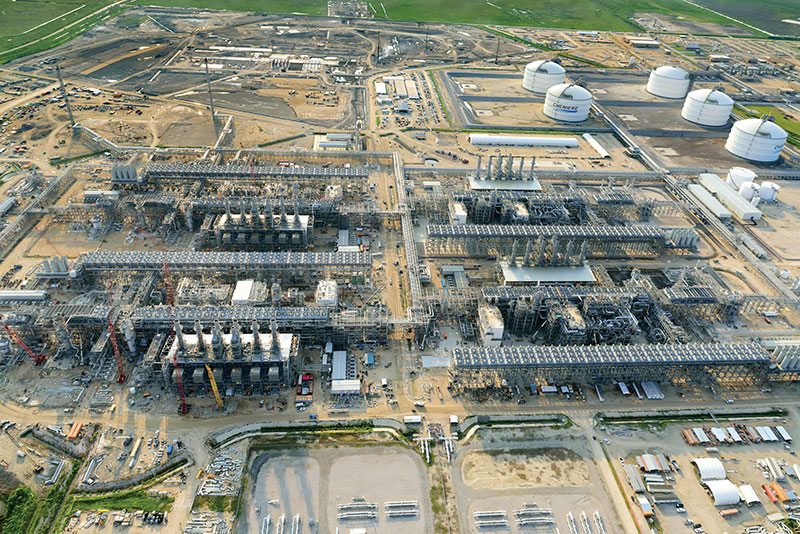Cheniere Energy Reduces Gas Intake at 2 U.S. LNG Plants by 1 Bcf/d
HOUSTON (Reuters) — The largest U.S. LNG producer, Cheniere Energy, on Tuesday reduced its combined feed gas intake at two of its plants by about 1 billion cubic feet per day (Bcf/d), according to data provider LSEG.
The combined reduction in gas usage from Cheniere's Sabine Pass, Louisiana, and Corpus Christi, Texas, plants helped push overall U.S. feedgas consumption to a four-week low of 11.2 Bcf/d, the data showed.
Contributing to Tuesday's drop was a maintenance shutdown at Berkshire Hathaway Energy's 0.8-Bcf/d Cove Point, Maryland, plant and smaller reductions elsewhere.
A Cheniere spokesperson declined comment on its gas intake.
Though June 30, the U.S. regained its crown as the largest LNG exporter in the world, according to data from the U.S. Energy Information Agency (EIA), surpassing Australia and Qatar.
Sabine Pass intake fell on Tuesday by just over 350 million cubic feet per day (MMcf/d) to 3.9 (Bcf/d), from 4.2 Bcf/d on Monday, LSEG data showed.
At Corpus Christi, gas intake dropped 600 MMcf/d, to 1.64 Bcf/d on Monday and Tuesday, from 2.25 Bcf/d on Sunday, LSEG data showed.
Gas flows to the seven big U.S. LNG export plants have averaged 12.6 Bcf/d so far in September, up from 12.3 Bcf/d in August. That compares with a monthly record of 14 Bcf/d in April, according to LSEG.
Gas was trading around $13 per MMBtu at the Dutch Title Transfer Facility (TTF) benchmark in Europe TRNLTTFMc1 and $15 per MMBtu at the Japan Korea Marker (JKM) in Asia JKMc1.
Related News
Related News

- Keystone Oil Pipeline Resumes Operations After Temporary Shutdown
- Freeport LNG Plant Runs Near Zero Consumption for Fifth Day
- Biden Administration Buys Oil for Emergency Reserve Above Target Price
- Mexico Seizes Air Liquide's Hydrogen Plant at Pemex Refinery
- Enbridge to Invest $500 Million in Pipeline Assets, Including Expansion of 850-Mile Gray Oak Pipeline





Comments